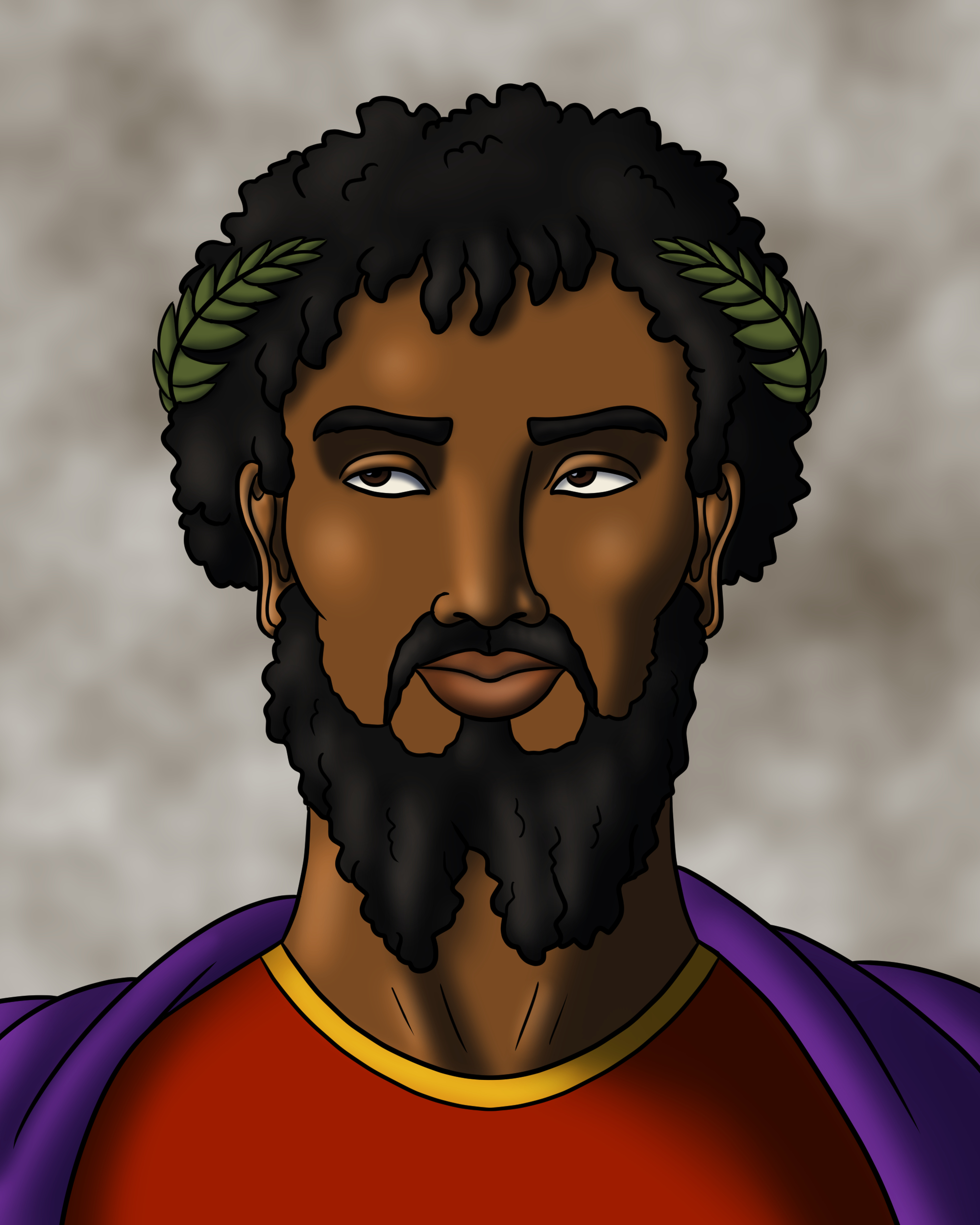This is a portrait of Septimius Severus, a Roman emperor of mixed Italian and North African ancestry who seized the imperial throne in a military coup around 193 AD and kept it until his death in 211 AD. However, five of his descendants would mantain their grip on leadership of the Empire until 235 AD, so you could say Severus had founded a short-lived ruling dynasty.
Among Severus’s actions as emperor were expanding the imperial army and raising their annual wages (which unfortunately required him to debase the currency and raise taxes on the populace, for both of which he received criticism from his contemporaries), winning a number of victories against the Parthian Empire in western Asia, and attempting to take over the entire island of Great Britain by invading Scotland. It was in Eboracum, now known as York, where he passed away from gout.
Although Severus has been celebrated as a “Black Emperor of Rome” due to his African parentage, I admit that I had some difficulty deciding on a skin tone. One of the Roman paintings of him does depict him with a fairly dark skin tone, but on the other hand his mother would have been a typical Italian Roman, and there is an anecdote from the Historia Augusta mentions the emperor reacting negatively to the “ominous color” of an “Aethiopian” soldier handing him a garland, which he took to be a negative omen (“Aethiopian” means “burnt face” in Greek and normally referred to African peoples from the Sudan). In the end, I settled on a nut-brown complexion roughly approximating his painted portrait.
Among Severus’s actions as emperor were expanding the imperial army and raising their annual wages (which unfortunately required him to debase the currency and raise taxes on the populace, for both of which he received criticism from his contemporaries), winning a number of victories against the Parthian Empire in western Asia, and attempting to take over the entire island of Great Britain by invading Scotland. It was in Eboracum, now known as York, where he passed away from gout.
Although Severus has been celebrated as a “Black Emperor of Rome” due to his African parentage, I admit that I had some difficulty deciding on a skin tone. One of the Roman paintings of him does depict him with a fairly dark skin tone, but on the other hand his mother would have been a typical Italian Roman, and there is an anecdote from the Historia Augusta mentions the emperor reacting negatively to the “ominous color” of an “Aethiopian” soldier handing him a garland, which he took to be a negative omen (“Aethiopian” means “burnt face” in Greek and normally referred to African peoples from the Sudan). In the end, I settled on a nut-brown complexion roughly approximating his painted portrait.
This is a portrait of Septimius Severus, a Roman emperor of mixed Italian and North African ancestry who seized the imperial throne in a military coup around 193 AD and kept it until his death in 211 AD. However, five of his descendants would mantain their grip on leadership of the Empire until 235 AD, so you could say Severus had founded a short-lived ruling dynasty.
Among Severus’s actions as emperor were expanding the imperial army and raising their annual wages (which unfortunately required him to debase the currency and raise taxes on the populace, for both of which he received criticism from his contemporaries), winning a number of victories against the Parthian Empire in western Asia, and attempting to take over the entire island of Great Britain by invading Scotland. It was in Eboracum, now known as York, where he passed away from gout.
Although Severus has been celebrated as a “Black Emperor of Rome” due to his African parentage, I admit that I had some difficulty deciding on a skin tone. One of the Roman paintings of him does depict him with a fairly dark skin tone, but on the other hand his mother would have been a typical Italian Roman, and there is an anecdote from the Historia Augusta mentions the emperor reacting negatively to the “ominous color” of an “Aethiopian” soldier handing him a garland, which he took to be a negative omen (“Aethiopian” means “burnt face” in Greek and normally referred to African peoples from the Sudan). In the end, I settled on a nut-brown complexion roughly approximating his painted portrait.




